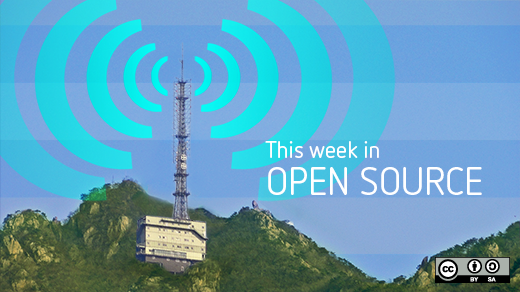In this week's edition of our open source news roundup, we take a look at open data not being so open, Facebook releasing more of its tools as open source, and more!
Open source news for your reading pleasure.
January 17 to January 23, 2015
World Wide Web Foundation releases second open data barometer report
In 2013, leaders of the G8 signed the Open Data Charter. The Charter promised to make government data freely available, at no cost, and in a format that anyone could use. There's still a long way to go, according to the second edition the World Wide Web Foundations Open Data Barometer report published last week.
Who is the most transparent government? The United Kingdom, followed by the United States, Sweden, France, and New Zealand. Some of the least transparent governments include those from Myanmar, Morocco, and the Philippines.
According to the report, "much more needs to be done to support data-enabled democracy around the world." Fewer than 10% of the countries surveyed in the report release open data. However, the the Foundation warns that "the trend is towards steady, but not outstanding, growth in open data readiness and implementation."
Facebook artificial intelligence tools made open source
Whether you like or loathe Facebook, you have to agree that the company is committed to open source. It reaffirmed that commitment last week by releasing some of its artificial intelligence tools as open source. The tools will enable developers to build services "involving everything from speech and image recognition to natural language processing."
The tools include modules that can help process natural languages and do speech recognition as well as algorithms that do deep learning. The latter can guess what users will be interested in by analyzing their past habits. It can also do facial recognition. But, as Facebook's Soumith Chintala points out, having the tools isn't enough. He stresses that "someone has to go and implement the algorithm in a program, and that’s not trivial in general. You have to have a lot of skill to implement it efficiently."
Linus Torvalds: security problems need to be made public
At linux.conf.au last week in Auckland, New Zealand, Linux founder Linus Torvalds offended a number of people with his comments about diversity in the Linux world. That controversy drowned out what Torvalds had to say about security issues in the software world, which was important.
In a Q&A session, Torvalds said, "I think you absolutely need to report security issues, and you need to report them in a reasonable timeframe." He disputed the claim that disclosing problems only helps the so-called black hat hackers. Instead, it spurs developers to fix the problems.
Torvalds said that the Linux kernel mailing list reports security issues within five working days. He added, "In other projects it might be a month, or a couple of months. But that's so much better than the years and years of silence which we used to have."
U.S. digital team shares code and best practices with U.K. counterpart
Strong ties of cooperation between the U.S. and the U.K. date as far back as 1941. That trend is continuing, with the U.S. Digital Service working with the U.K.'s Goverment Digital Service to "work together to share best practices and tackle shared challenges."
Dubbed a digital partnership, the relationship between the two services has deepened as of late with both sides "now sharing open source code they develop as part of their digital projects." The teams also hope to collaborate on improved ways to digital services, to train future experts, and to further open data and open government initiatives.
A second life for out-of-print books
That's the aim of the $1 million Humanities Open Book grant program run by the U.S. National Endowment for the Humanities (NEH) and the Andrew W. Mellon Foundation. The program "will give grants to publishers to identify great humanities books, secure all appropriate rights, and make them available for free, forever, under a Creative Commons license."
The goal of the grant, according to William Adams who heads the NEH, is to "widen access to the important ideas and information they contain and inspire readers, teachers and students to use these books in exciting new ways." The funding will allow publishers to convert worthwhile out-of-print books to EPUB files that anyone can read with an existing eReader.
If you're a publisher, or work for one who may be interested in this program, you can find the application guidelines at the NEH website.
In other news
- Open source platform Sandstorm.io raises $1.3 million in seed funding
- Art department at France's University Paris 8 dumps Photoshop for Krita
- Sweden's public administration to further embrace open source
- The benefits of open source textbook
- Ubuntu's operating system for smart devices debuts
A big thanks, as always, to the Opensource.com moderators and staff for their help this week.







Comments are closed.